By Adam Mercier
The picture still hangs on my wall – our 2015 swim team, all huddled around for a group picture, to be given to each senior on the team. As I look across the panorama, I pause on each teammate’s face and remember each by name. But as I remember, I also wonder – how did we get to be such a tight-knit family? Just then, our chant comes back to greet me – “Ohana means family, and family means nobody gets left behind or forgotten.” This is our team’s, no, our family’s, only welcoming ceremony – a simple phrase that contains immensely deep meaning.
“Ohana means family, and family means nobody gets left behind or forgotten”
It is this phrase with which we start the year, this anthem that becomes the pedestal on which we hang our pride, our unity, and our spirit. It is this term, “Ohana”, with which we close every practice, meet, and championship. It is this communal appreciation for one another that drives out any thought of hazing from our ranks. At the first practice of the year, every swimmer on our team comes out of the pool defeated and somewhat weary to return the next day – and rightfully so! But the characteristic that we give ourselves, that of family and that of being wholly united as one body around a common goal and common respect, fosters energy and equality.
However, it is not enough to say that these values – equality, fraternity, and comradery – are what place our team beyond the thought of hazing. Rather, these traits are a challenge to weed out the harmful mentality that hazing produces and to prevent the action. In this same season, only a few practices after the first bout of “Ohana”, I recall hearing a seemingly innocent request being made; “freshmen, go put the lane lines in the pool”. Looking around at my teammates to see who had given the order, I was met with faces as appalled as mine. The derisive and dismissive tone with which the command was given was horrifically uncharacteristic of a teammate, of a family-member. What occurred next, though, sticks in my mind even more poignantly – two upper classmen jumped into the pool, told the freshmen to return to their stretches, and put the lane lines in themselves. Needless to say, the individual who had made the assumption that freshmen were simply servants was proven wrong.
This incident, more than any other from my swimming career, brought me to a realization of the true nature of a team. Teams must be families. If hazing is to be avoided, each member must enter the field, court, or pool given the same respect as would be given to any other member, regardless of race, creed, or age. To avoid putting others down, everyone must stand up, especially those who are most often culpable of hazing. Our welcome process was simple, but big things often come in small packages. One word is all it took to instill in an entire team the value of standing up for the “new kid on the block”; one word is all it took to understand that every single man and woman who got into the pool did so as an equal and came out as an equal;
one word is all it took to appreciate each individual for just that, their individuality. We have no grand ceremony, no induction into a prestigious group, no calling-card for glory. We simply have a family, united under the common banner of “Ohana”. “Ohana means family, and family means that nobody gets left behind or forgotten” – Ohana means standing up as one. Ohana means family. Ohana means it is everyone’s responsibility.


